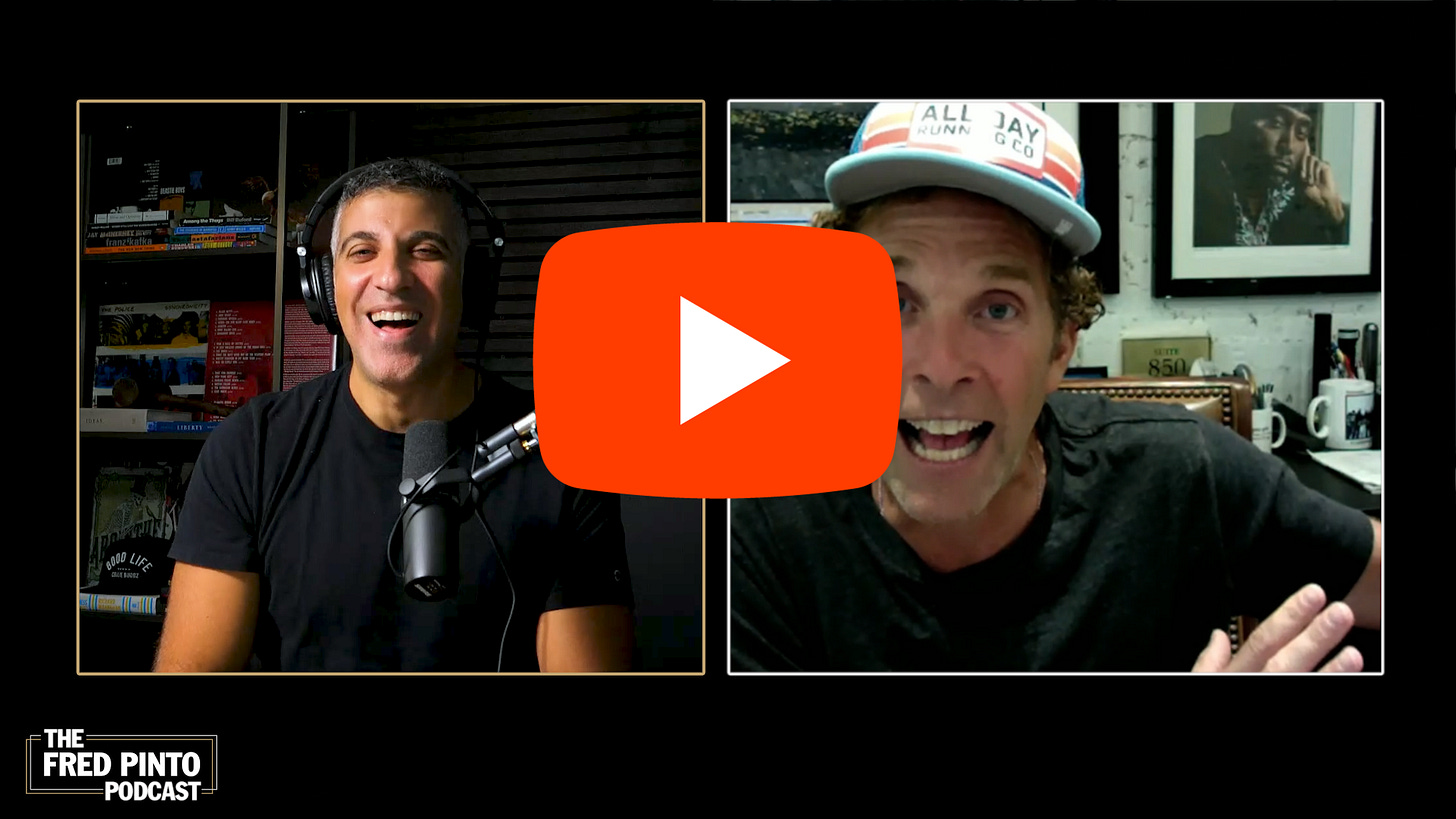Practical Tips On Life and Business, With Entrepreneur, Rapper, and Best-selling Author, Jesse Itzler
YouTube | Apple Podcast | Spotify | Buzzsprout | Website
With so much information at our fingertips, we modern humans tend to overthink things.
And when we do, our hard-wired negativity bias brings our focus to the risks and threats around us.
In ancient times, it gave us a survival edge by helping us spot and deal with more dangers. Less vigilant humans were more likely to have their lives abruptly cut short by predators and enemies.
In today’s largely abundant and safer environment, we’ve cast negativity as a proud display of realism. It positions us as smart and well-informed, fuelling our endless culture war spats.
The link between pessimism and intelligence has a rich literary tradition. Dostoyevsky wrote that “pain and suffering are always inevitable for large intelligence”, while Hemingway found that “happiness in intelligent people is the rarest thing I know.” Bukowski’s hardened realism was similarly expressed: “Sadness is caused by intelligence, the more you understand certain things, the more you wish you didn't.”
In this view, optimists are seen as naïve and delusional.
But does actual realism not require a heightened awareness of all reality – in both its negative and positive aspects? And does systematically downplaying the positive aspects of life not come with its own dangers?
--
My guest in this episode of the podcast - serial entrepreneur, recording artist, life coach, and best-selling author Jesse Itzler - embodies a practical kind of optimism that’s driven his many successes.
It’s not a passive expectation that “things will work out”. Rather, it’s a head-first dive into the challenges of materializing a big vision and committing to the resulting process, regardless of its hardships:
I'm almost manic. I operate with the most insane urgency. Everything is ready (and) firing. I hear about Ultraman, I sign up for it. I don't know where it is. I don't know how cold the water is. I just, I'm in, and then I'm going to figure it out. Marquis Jet, great idea, I mean, there's a little bit of research behind it, obviously, but I don't have it all figured out. I don't have the time to wait to figure it out. If I have the enthusiasm, if I can see it in my mind's eye, like, I could do this, in my heart, if my intuition is telling me that I can make this happen, I could see a path, and I see what it looks like, I go for it. The only thing I'm good at is not quitting until I find a path to success. And that's not a superpower, man. That is just, an unwavering commitment to not negotiate your goal. And I have an unwavering commitment to that. And it doesn't always work. But I've always found that there are only two outcomes: success, or you’ve exhausted every possible option, and it didn't work. And either one of those is okay, it's okay to fail, but not quit. And there's a big difference between failing and quitting. Quitting is like, “This sucks. I don't have what it takes. I don't want to go through this. I tap out, I'm done.” Failing is, “It didn't work for me. I tried everything, and my product wasn't right at the time. It just didn't work.” And that's okay too.
Viewed in this light, pessimism can be a convenient excuse for quitting or, even worse, never even trying. It can imprison us into a status quo of despair and inaction.
An optimistic stance toward the future, on the other hand, can itself be a step toward actually creating a better one.
This is maybe why optimism is not only associated with better health outcomes and a higher rate of goal achievement, but is also the best predictor of resiliency.
Jesse’s endless stream of adventures and achievements shows that this battle-tested brand of optimism isn’t just a competitive advantage: it’s also way more fun.
You can learn more about Jesse’s books and programs here:
You can start by checking out Jesse’s thoughts on not “shortchanging the journey” here:





